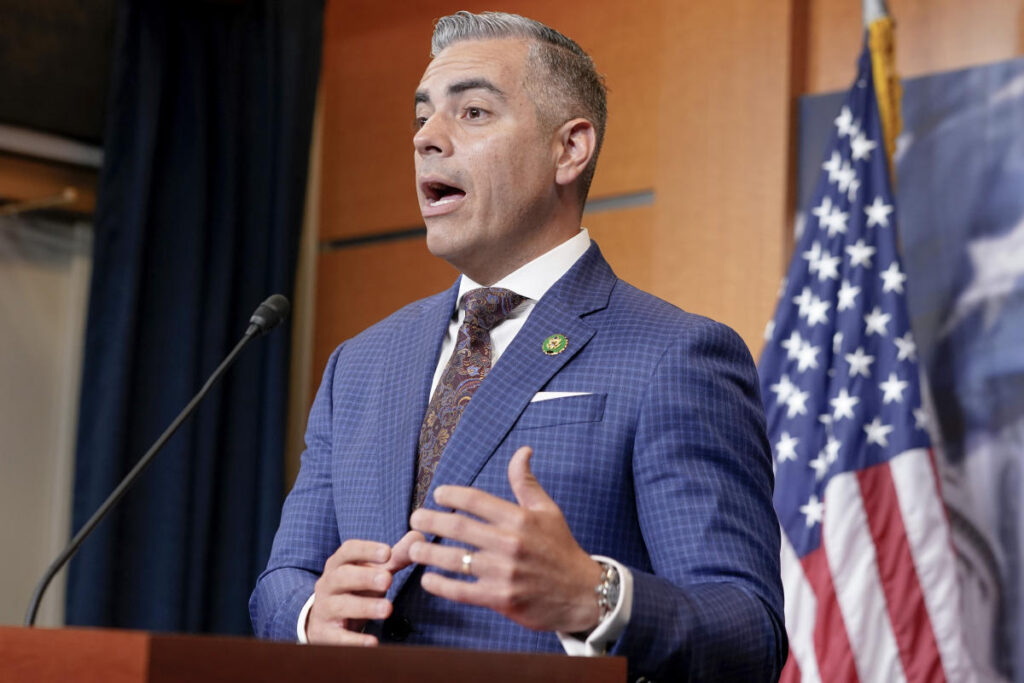Republican Rep. Juan Ciscomani has secured reelection for a U.S. House seat representing Arizona’s 6th Congressional District, which encompasses an area from Tucson to the New Mexico border and includes part of the Arizona-Mexico border. In a closely monitored rematch against Democrat Kirsten Engel, the candidate he narrowly defeated two years ago, Ciscomani emerged victorious, reinforcing the Republican party’s control of the U.S. House of Representatives. This victory not only strengthens the GOP’s hold on Congress but also complements the party’s overall power alongside President-elect Donald Trump.
Upon receiving the concession from Engel, Ciscomani expressed his readiness to tackle what he characterized as significant challenges facing the country. He emphasized the importance of key priorities such as securing national borders, reducing living costs, and ensuring the welfare and appreciation of veterans and seniors. His remarks and commitment to action reflect a determined stance to contribute positively to both his district and the broader national landscape. Engel, recognizing the voters’ decision, gave credit to her campaign efforts but acknowledged the outcome as she announced her departure from the race.
Ciscomani’s political background includes experience as an aide to former GOP Governor Doug Ducey. His personal story is notable; having immigrated from Mexico as a child, he has made border security a central focus of his platform. However, in a strategic move, Ciscomani has sought to differentiate himself from the inflammatory anti-immigrant rhetoric often associated with Trump, suggesting an attempt to appeal to more moderate voters within his competitive district. Engel, accomplished in her own right as a law professor and former state legislator, has critiqued Ciscomani for rejecting a significant bipartisan border reform bill earlier in the year, which would have reformulated the asylum system and granted considerable powers to the presidency regarding migrant expulsion.
Arizona’s 6th Congressional District is characterized by its tightly contested demographic, showing a near-even distribution among Democrats, Republicans, and independents, though Republicans currently hold a slight edge in voter registration. In the previous election cycle, Ciscomani had secured a victory over Engel by a margin of over 5,200 votes, demonstrating the competitive nature of their political rivalry. As a result of Ciscomani’s recent triumph, the composition of Arizona’s House delegation remains stable, with six Republicans and three Democrats continuing to represent the state in Congress.
Ciscomani’s campaign strategy appeared effective, enabling him to hold onto his seat amidst a fluctuating political landscape. He effectively focused on local issues that resonate with his constituents, while also navigating the complexities of his identity as both a Latino and a member of the GOP in a largely diverse electoral district. The outcome signifies a commitment by voters in his district to reaffirm conservative representation, while Engel’s well-fought campaign showcases a continued support for Democratic values among a sizeable portion of the electorate.
Ultimately, Ciscomani’s victory not only solidifies Republican influence in Arizona but also emphasizes the importance of local issues in swaying electoral outcomes. As both Ciscomani and Engel reflect on the election results, the implications for ongoing political dialogues around immigration, border security, and social welfare remain crucial focal points that will shape future campaigns and legislative agendas.

